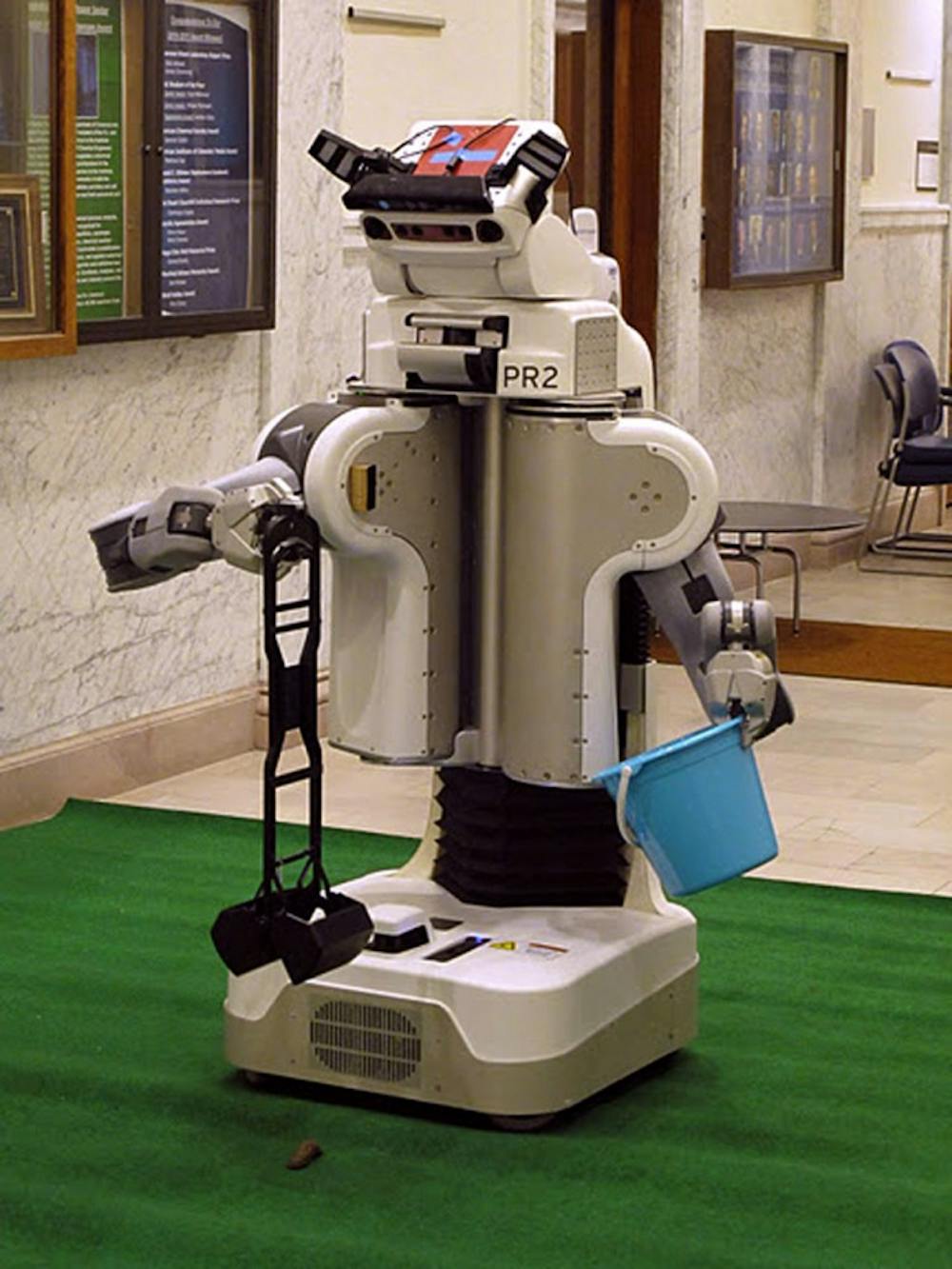Last month, when Benjamin Cohen attended an international robot conference, little did the crowd know that he would show up in a brown-stained lab coat to present a demo involving a “poop-scooping” robot.
The demo at the International Conference on Intelligent Robots and Systems in San Francisco turned plenty of heads, or at least plenty of noses.
“People take [robotics] too seriously. Half of the people in California were laughing, while the other half was too nervous, like ‘Who is this schmuck and why is he talking about poop?’,” said Cohen, a fourth year doctoral student in Computer Science.
The project started two years ago, when the hardware and open source software company Willow Garage — the same company to host the conference in San Francisco — built the Personal Robot 2 and decided to give 11 of these robots to institutions for free.
Institutions who received one of the PR2s would be required to develop the robot so that it could accomplish certain tasks.
With that in mind, Penn’s General Robotics, Automation, Sensing and Perception lab, where Cohen works, submitted a proposal that incorporated the plans of eight different Penn professors.
Proposals ranged from teaching the robot to intelligently use its arms to developing a robot that exhibited a certain amount of dexterity in actions involving the use of its fingertips.
But Cohen had other plans. Over the summer he had talked to a friend in New York about the possibility of developing a robot to pick up feces. The previous summer, Cohen worked with fellow group members to give the robot the ability to play multiple instruments at one time — piano with one hand and drums with the other.
“We wanted to do something difficult but utterly pedestrian, something that people could relate to. Work in the lab is often abstract and theoretical. We wanted blue collar labor for the robot to do. We weren’t sure that we would be able to do it, but that was part of the fun, too,” third year Computer Science doctoral student Anthony Cowley said.
“We work too much. So we decided ‘Hey, this is for fun’,” Cohen added.
On a Friday night this past summer, Cohen grabbed some beer and teamed up with a group of four others to program the robot.
Cohen, who also acts as the administrator of the robot, divided the areas of focus among the team members. Cowley worked on the perception of the robot, which involved giving the robot the ability to detect objects on the ground and determine exactly where they are in relation to the robot.
Will McMahan, fourth year Mechanical Engineering doctoral student worked specifically with touch feedback, which involved making modifications to the poop scooper so that it was easier to hold, as well as giving the robot the ability to detect if a scoop was successful or not.
By the following Sunday night, the robot functioned at 60 percent. Within 10 days, the robot was at 95 percent.
If the PR2 successfully scoops poop into the bucket, the phrase “poop scooped” echoes from the robot. If it’s not successful, an “oops, I’ll try again.” is sure to follow.
“We wanted to make it so that the robot was more aware of what it was doing, making its motions smooth and semi-realistic,” McMahan said.



